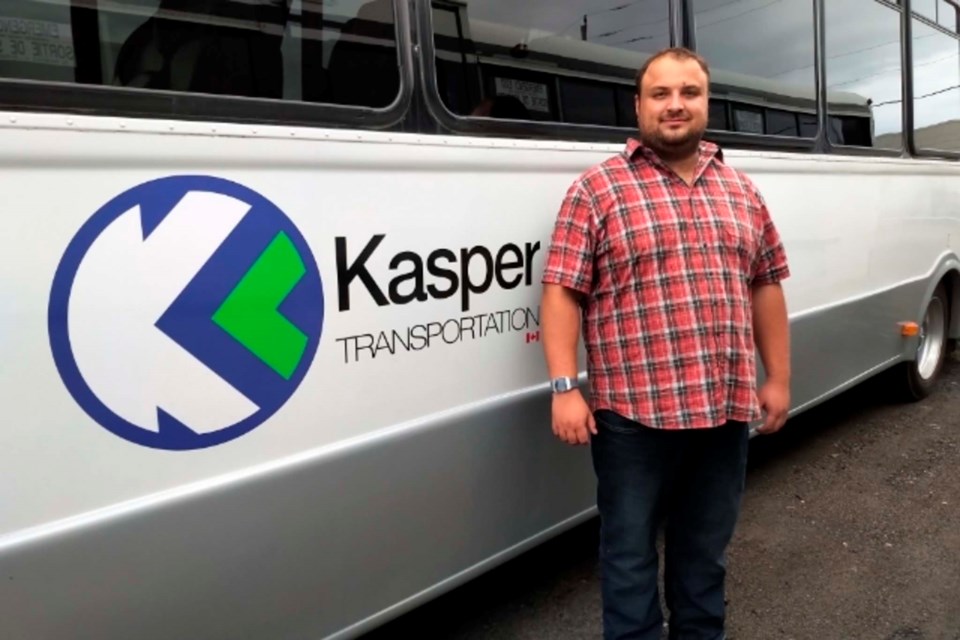THUNDER BAY – Thunder Bay-based Kasper Transportation has asked the city to get on board with its call for a national intercity bus network backstopped by the federal government.
Kasper Wabinski asked the municipality to endorse a plan put forward by the Coast to Coast Bus Coalition (CCBC), a group of four regional bus services from across the country, at a city council meeting on Monday.
Companies like his offer an essential service, he argued, providing crucial connections for residents of rural communities and First Nations and shipping essential goods including blood samples.
“Just because we’re calling ourselves for-profit, doesn’t mean we’re not a public service,” he said, adding the industry runs on low-profit margins.
“You don’t have to apologize for trying to make a profit,” Mayor Bill Mauro later responded.
The CCBC has launched a campaign advocating for the creation of a national “essential bus network” supported by the federal government.
The coalition hopes to secure a commitment from the government to sign a memorandum of agreement to work toward long-term intercity bussing solutions, provide around $150,000 for a feasibility study, and create a new National Highway Transportation Board (NHTB).
The group has also asked the federal government to allow private bus operators to access federal infrastructure funding, Wabinski said.
“[The coalition] plans to close the existing network gaps and proposes that Transport Canada backstop an Essential Bus Network to ensure Canadians in rural, northern, and Indigenous communities are never again isolated and stranded without access to safe transportation,” reads a document from the group.
Government action is necessary as larger companies like Greyhound increasingly withdraw service in more remote areas, Wabinski argued.
The company suspended Canadian bus operations during the pandemic, and had already cancelled numerous routes in the country over the preceding years.
The CCBC wants to fill in those gaps, he said, but will need government help to do so.
“It’s very expensive to rebuild what Greyhound used to be back in the heyday,” he told councillors.
Wabinski has previously criticized the provincial government for subsidizing competing routes in the region through the Ontario Northland Transportation Commission, a crown corporation.
On Monday, he asked Thunder Bay’s city council for a letter of support for the campaign, saying the coalition was making identical requests to all municipalities within its network.
Such a letter would not commit the city to take any actions, but Wabinski said the “symbolic support” could help move federal decision-makers.
Mayor Bill Mauro offered to work to bring forward a motion of support at a future council meeting.
Wabinski reported encouraging signs of interest from the federal government, saying recent meetings had left the impression the issue was being seriously considered.
“There’s a lot more action going on than we ever imagined,” he said of the advocacy efforts. “They understand that something has to be done, because nothing is being done at the provincial level right now.”
In addition to Kasper Transportation, initial signatories to the Coast to Coast Bus Coalition include the Wilson Group in B.C., the Pacific Western Group of Companies in Alberta, and Coach Atlantic Maritime Bus in Nova Scotia.
